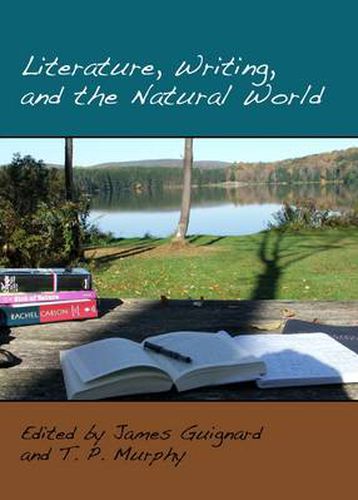Readings Newsletter
Become a Readings Member to make your shopping experience even easier.
Sign in or sign up for free!
You’re not far away from qualifying for FREE standard shipping within Australia
You’ve qualified for FREE standard shipping within Australia
The cart is loading…






The English Association of Pennsylvania State Universities held its annual meeting in 2006 at Mansfield University in Pennsylvania. The conference theme was Literature, Writing, and the Natural World. This collection grows out of the conference and indicates the desire to understand all aspects of our relationship with the natural world, the function of literature in clarifying that relationship (in ways science and politics cannot), and the role of the literature teacher-scholar wanting to respond to pressures of environmental change.In these times, interpretation is a vital task, not only for the way it educates us about our attitudes toward nature, but because it develops the crucial skills of looking closely, engaging, reflecting, and responding. One could argue that, as a culture, Americans are behind the curve in understanding the ways we depend upon a healthy relationship with nature, and one way (among many) depends upon examining it through texts and textual representation. When the writers here dig into The Main Woods, Jayber Crow, the poetry of Pablo Guevara, or the movie Crash, they are contributing to our understanding of the ways in which we view nature and how that view plays a role in the way we relate to nature.These days, many disciplines engage global warming and other environmental issues routinely, and the literature classroom should be no different. Just as we read a book and address fundamental themes such as What does it mean to love? or How do we develop identity? we should also be asking What is my responsibility when I decide what resources to use? If we understand literature as equipment for living in a warming world, we may be able to help students make some sense out of their world and some decisions about how to act.
$9.00 standard shipping within Australia
FREE standard shipping within Australia for orders over $100.00
Express & International shipping calculated at checkout
The English Association of Pennsylvania State Universities held its annual meeting in 2006 at Mansfield University in Pennsylvania. The conference theme was Literature, Writing, and the Natural World. This collection grows out of the conference and indicates the desire to understand all aspects of our relationship with the natural world, the function of literature in clarifying that relationship (in ways science and politics cannot), and the role of the literature teacher-scholar wanting to respond to pressures of environmental change.In these times, interpretation is a vital task, not only for the way it educates us about our attitudes toward nature, but because it develops the crucial skills of looking closely, engaging, reflecting, and responding. One could argue that, as a culture, Americans are behind the curve in understanding the ways we depend upon a healthy relationship with nature, and one way (among many) depends upon examining it through texts and textual representation. When the writers here dig into The Main Woods, Jayber Crow, the poetry of Pablo Guevara, or the movie Crash, they are contributing to our understanding of the ways in which we view nature and how that view plays a role in the way we relate to nature.These days, many disciplines engage global warming and other environmental issues routinely, and the literature classroom should be no different. Just as we read a book and address fundamental themes such as What does it mean to love? or How do we develop identity? we should also be asking What is my responsibility when I decide what resources to use? If we understand literature as equipment for living in a warming world, we may be able to help students make some sense out of their world and some decisions about how to act.